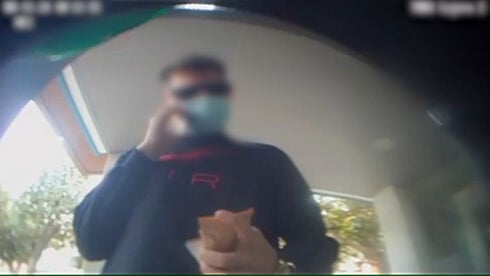ONE night was enough for me. Friends invited my wife and myself to stay the weekend at their new-found shangri-la, a remote cortijo in the Malaga countryside.
The idea was to enjoy the rural tranquility. Tranquility? Madre mía! Throughout the night it seemed we were under siege as a pack of wild dogs stormed around the isolated farmhouse, baying like the hound of the Baskervilles multiplied a hundredfold.
At breakfast our friends joked about neighbours dropping in at all hours, moody, taciturn types who would sit at the kitchen table gazing at them in a strange fashion.
The more they told me about these odd visitations the more the hairs on the back of my neck rose up and the more it became plain they had stepped into a hornets’ nest.
“It’s so beautiful here,” they insisted.
Maybe, but when night fell a sinister atmosphere enveloped the cortijo. As the facts emerged, it was clear the innocent newcomers had inadvertently become embroiled in family feuds and violent clashes over land boundaries.
The night of the wild dogs and a number of other strange experiences in rural Andalusia so spurred my imagination that I ended up writing Don’t Miss The Fiesta!
It concerns an Englishman who seeks refuge in a small community only to find himelf embroiled in dark secrets and dangerous passions.
Now don’t me wrong. The book is pure fiction. No connection with the small Malaga village where I’ve lived for many years. Heaven forbid. It’s a delightful spot.
Even so, no matter how peaceful a place may seem to an outsider you never know what lies beneath. Such dramas as Lorca’s plays Blood Wedding and The House of Bernarda Alba have their source in real life.
The first danger sign is when the fellow trying to sell you a village property declares: “Nothing ever happens here. It’s so peaceful.”
Ho, ho, ho! Nothing ever happens in my village either. That’s if you don’t count — in the past year alone — one murder, two suicides, several mysterious fires including a number of vehicles spontaneously bursting into flames, the arrest of a particularly discreet resident (he turned out to be a Russian hitman), my neighbour’s roof caving in at 4am…
Naturally, city-dwellers hunting for their place in the sun don’t want to hear about the darker side of life in the campo. It spoils the illusion.
And that plays into the hands of smooth salesmen, like Federico. Always ready to show potential buyers desirable pieces of real estate, he would escort them to a hillside with a view of the sea.
As he pointed out the virtues of the spot, a donkey would hove into view led by Paco, an affable old rustic. Surprise, surprise! Paco owned the land.
A gentlemanly chap, Paco would press glass after glass of his homemade wine on the innocent visitors, totally charming them.
Bowled over, they were all too ready to sign a sales contract and put a deposit down.
Returning later to mark out the site of their dream home, the couple saw no sign of Paco. Instead, a new player appeared on the scene — a fire-breathing farmer who asked them what the hell they were doing there.
“This is my land and it’s not for sale!” he would storm. “You’re trespassing.”
Despite all their attempts, the shocked buyers never located the salesman again and said goodbye to their deposit. A few months later the charade would be repeated with new victims — Federico and Paco enjoyed the high life for quite a while.
Every old house has its history — and long-forgotten events can come back to haunt the new owners. In one home a few yards from mine objects guided by unseen hands would fly across the room, fall off tables, smash against walls.
Only when when a young member of the family moved to another address did the bizarre events stop. Yes, poltergeists do exist.
An English family, gentle, unsuspecting folk, spent a considerable amount renovating another old property. They were happy as larks — until a neighbour began talking about the hanging.
When they discovered that a previous owner had hanged himself in the stable, now converted into a bedroom, they were spooked. Unable to face even going into the room, they soon fled to another house. But that was an old one too — who knows what events had unfolded there?
Ignorance of language and local laws and customs repeatedly land newcomers in hot water. But who could anticipate being terrorised by The Phantom?
Returning from a month’s trip away, we were surprised to find that a young American to whom we had loaned our house had vanished.
It turned out she had been frightened away by “La Fantasma”. On a walk through the campo she had suddenly been confronted by a masked figure waving a knife at her and mouthing strange words.
Stumbling back to the pueblo, she packed her bags and fled. It emerged that a number of girls had suffered similar confrontations. They were in a state of shock. The Phantom was on the rampage.
She’s lost all her friends. And she’s been stalking her old boyfriend. There’s something really scary about that woman!”
Truth to tell, he was an easygoing sort of marauder. He did not physically molest anybody, just demanded money. If they had none, he could be bought off with sunflower seeds or sweets.
His reign of terror was short-lived. And when he was caught he proved to be a teenage youth with acne, an “infeliz” as the Spanish say.
Then there was Josefa. Was she a witch or wasn’t she? The case is still open. But she was definitely an “infeliz”.
This acquaintance knocked on our door late one night, asking for a bed. As she seemed upset and confused, we took pity and gave her a bed for the night.
A dire mistake.
Josefa was lean, dark and intense. Her eyes burned as she declared again and again that she needed “espacio vital” (literally “living space”). The next day she made no move to leave.
Nor did she seem willing to take a shower, which she all too obviously needed.
When I mentioned Josefa to a friend he looked aghast.
“Get her out! She’s bad news. She has an apartment in the next town but she won’t go there. She’s lost all her friends. And she’s been stalking her old boyfriend. There’s something really scary about that woman!”
Josefa showed no inclination to leave, but the next morning I insisted on driving her to her apartment. She said nothing, though she did treat me to an enigmatic smile.
That night I was surprised to find our back door had somehow become unlocked, so I bolted it. Later I thought I heard an odd noise, but drifted off to sleep.
Next morning, we found Josefa back in residence. Finding all doors closed, she had smashed a window to gain entry. When I remonstrated with her, she just gave me that same knowing, Cheshire-cat sort of smile.
It was too much. I ordered Josefa to leave. Finally she disappeared. But has she gone for good?
Even now, when we hear sounds in the night — creaking woodwork, something padding across the roof — my wife and I tense. And wonder…
Rural tranquillity? Who knows what lies beneath?
David Baird’s latest book is Don’t Miss The Fiesta! (published by Maroma Press, http://maromapress.wordpress.com/). He is also the author of Between Two Fires – Guerrilla war in the Spanish sierras and the just updated Back Roads
NOTE WELL; The house in the article is not the house David Baird stayed at. In fact it is the lovely home of Morris Fitzpatrick. It can be visited at www.cortijodelascarretas.co.uk
Click here to read more News from The Olive Press.






God I have lived in a campo before but thank god I didnt come across so much drama. It sounds really spooky.